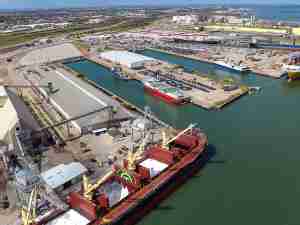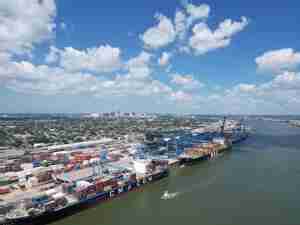The Port of Baltimore could reopen in May, according to a logistics executive who has cargo facing long delays aboard the ship that destroyed the Francis Scott Key Bridge early Tuesday.
“I don’t think this closure is going to last that long, maybe six weeks or something like that is what I’m hearing,” said Jim Monkmeyer, president of transportation at DHL Supply Chain, a Deutsche Post unit based near Columbus, Ohio. “I’m hearing May – nobody is saying when in May — that’s why I’m saying six weeks.”
The focus of local officials now is rightly on efforts to recover the missing victims, he said. At some stage the priority will shift to the salvage operation to clear the debris as quickly as possible and reopen the blocked channel so the nearly 40 ships stuck in the port can leave and others – another 40 or so, according to a recent count — can enter.
“We do have several customers affected. It’s mostly in our automotive and engineering manufacturing sectors, which includes defense,” Monkmeyer said. “We’ve got clients in those sectors that are being impacted and so we’re working with them to try to divert containers and deal with delays.”
Regarding the DHL customers whose containers are on the Dali, the Singapore-flagged container ship that lost control and plowed into one of the bridge’s main support towers, “I don’t know how long they’re going to hold that ship there but I suspect it will be some time.”
DHL freight that was supposed to be imported through Baltimore is going to other ports like Norfolk, Virginia, and New York-New Jersey, Monkmeyer said.
“We’re expecting tremendous congestion at Norfolk — that’s the easiest port to get to and a little bit more available as New York-New Jersey is typically maxed out,” he said. “You are going to create some significant congestion along the East Coast and I’m already hearing people talk about rerouting to the West Coast but I haven’t seen that yet – I think that’ll depend on how long this lasts.”
Car carriers that relied on Baltimore as the nation’s largest gateway for vehicles could find an alternate route through the facilities in Brunswick, Georgia, he said. But even that won’t be easy or cheap given the longer distance for freight to travel.
“There’s a lot of scrambling going on right now,” Monkmeyer said. “I could see this having an impact on cost especially and some congestion for maybe three to six months.”










